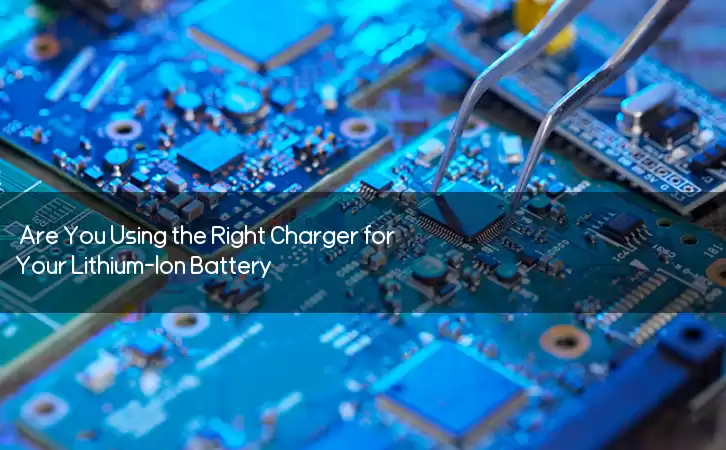Are You Using the Right Charger for Your Lithium-Ion Battery?
Published:2023-08-03 10:36:49 Author:Green WCND Views:28Lithium-ion batteries are the most popular rechargeable batteries used in a wide range of electronics that we use on a regular basis, including consumer electronics, electric vehicles, drones, and medical devices. While they offer many benefits over other types of batteries, it is important to use the right type of charger to ensure their safety and longevity.

Firstly, it is important to note that not all lithium-ion batteries are created equal. They come in different shapes, sizes, and chemistries. Some are designed for high discharge rates, while others are optimized for long cycle life. Additionally, lithium-ion batteries require a specific charging profile that varies depending on the battery’s capacity, chemistry, age, and manufacturer specifications. Thus, choosing the right charger for your lithium-ion battery is crucial to ensure optimal performance and safety, and prevent damage or failure.

When it comes to choosing a suitable charger for your lithium-ion battery, there are a few factors to consider. The first one is the voltage rating. Lithium-ion batteries have a nominal voltage of around 3.7 volts per cell, but they can typically operate within a range of 3.0 to 4.2 volts. Thus, the charger should provide a voltage that matches or is within the safe range of the battery. Using a charger with a higher voltage can cause the battery to overcharge, overheat, and potentially catch fire or explode. On the other hand, a charger with a lower voltage may not fully charge the battery or result in reduced capacity and cycle life.
The second factor is the current rating. This refers to the amount of current that the charger can deliver to the battery during charging. Lithium-ion batteries are typically charged at a constant current until they reach a certain voltage, and then the charging current gradually tapers off. The charging current is usually expressed in units of amps (A) or milliamps (mA), with higher values indicating faster charging. However, it is important to use a charger that is compatible with the battery’s maximum charging current, which is typically specified in the datasheet or on the battery label. Using a charger with a lower current rating may result in slow charging or incomplete charging, while using a charger with a higher current rating can cause overheating and damage to the battery.
The third factor to consider is the charging algorithm. Lithium-ion batteries require a specific charging algorithm that includes multiple stages, such as pre-conditioning, constant current, constant voltage, and trickle charge. The charging algorithm should be compatible with the battery’s chemistry and capacity to ensure proper charging and prevent overcharging, undercharging, or overheating. Some chargers use a universal charging algorithm that can work with various types of lithium-ion batteries, while others have a specific charging algorithm for a particular battery model or brand.
In conclusion, choosing the right charger for your lithium-ion battery is essential to ensure optimal performance, safety, and durability. It is important to consider the voltage rating, current rating, and charging algorithm of the charger, as well as the specifications of the battery, to avoid damage or failure. Additionally, it is recommended to use a charger that is certified by reputable organizations, such as Underwriters Laboratories (UL), to ensure compliance with safety standards. By following these guidelines, you can extend the life of your lithium-ion battery and avoid potential hazards.
Handheld Vacuum Cleaner Power Adapter Selection GuideIntroductionHandheld vacuum cleaners have become a mainstream tool for household cleaning due to their port···
Drill Power Adapter Selection Guide.drill-container { font-family: Arial, sans-serif; line-height: 1.6; max-width: 800px; margin: 0 auto; padding: 20px; } .dril···
As a manufacturer dedicated to providing high-quality kitchen appliances, choosing the right power adapter for your rice cooker is crucial to ensuring product s···
As a manufacturer of all-in-one desktop PCs, the power adapter serves as the "invisible guardian" of stable device operation. It must not only precise···





